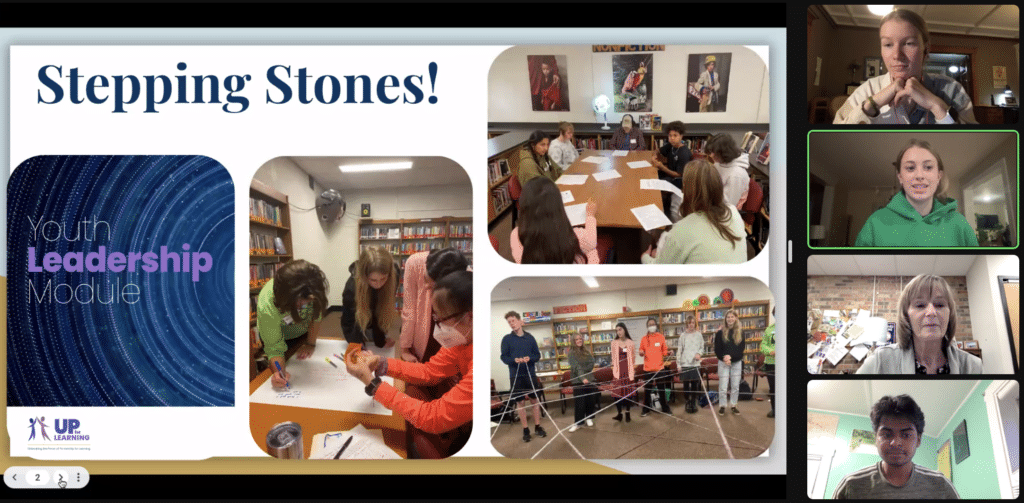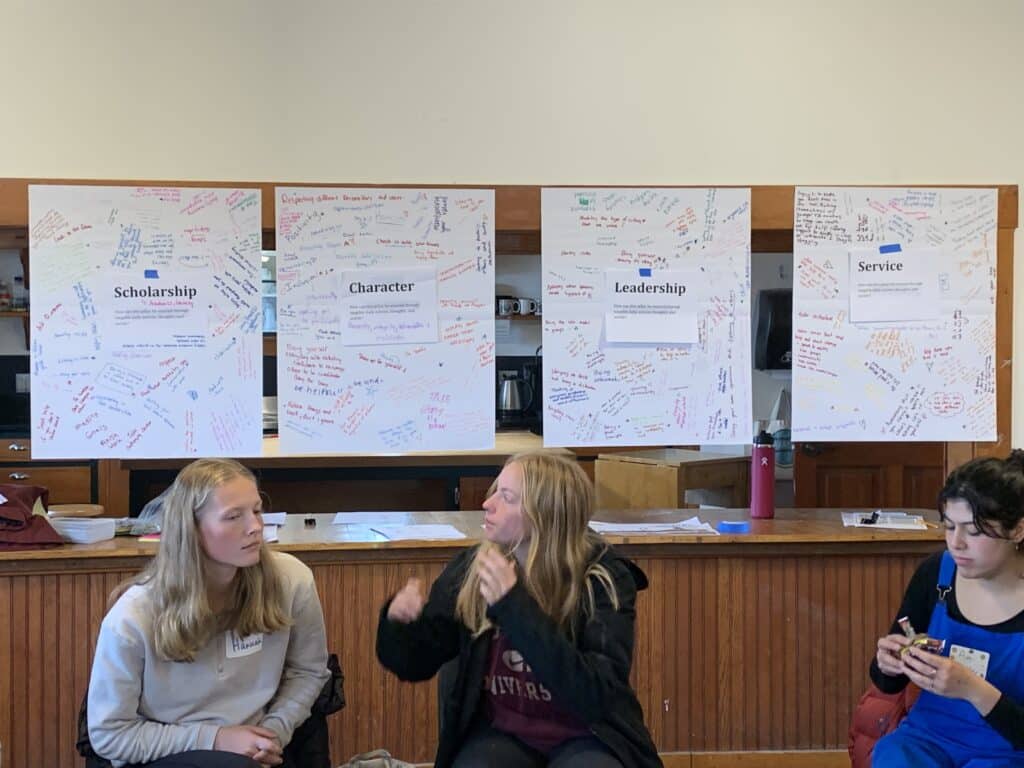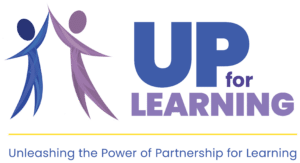
All of UP for Learning’s work depends on creating authentic partnerships between youth and adults. Adults bring a wealth of professional expertise to school redesign efforts, a systems-level perspective, and a wide array of skills accrued over time; youth bring their perspectives on the current learning experience, and have the wisdom, creativity, and proven capacity to partner in school transformation efforts. The integrity of this working partnership is tied to mutual respect, equity in an on-going exchange of ideas and input, and shared responsibility. And, for both parties to grow in their understanding and commitment to change, they sometimes need to learn in separate spaces. UP’s work also supports differentiated training for youth and for adults.
This school year, UP has been piloting a new Youth Leadership Module. This module provides tools for youth leaders to train other students as youth leaders. Throughout the fall, UP staff and Youth Program Specialists Ana Lindert-Boyes and Maisie Franke have used the module in different schools with diverse goals.
First, a short history taken from the module itself: “It all began when five youth from Harwood Union High School, Maisie Franke, Adam Porterfield, Ella Dice, Jeswin Antony, and Damien Garcia, who are also youth facilitators with UP for Learning, wanted to share their skills and experiences with peers in their own school. This group…designed a course through a ‘Flex Block’ opportunity, [and then] ran the course with a pilot group of 15 peers…From that experience, the most successful sections were kept and the ones that didn’t hit the mark were revised and edited to become more impactful.”
Their stated purpose is “to provide youth with the resources and structure to lead peers in strengthening leadership skills. Without strong adult support, clear communication, and leadership experience, it can be hard for youth to find their voice in sparking change and action in their communities. The goal is to help that process feel more natural and provide an outline for those who want to work with others to reach that endpoint. It’s not meant to define the exact steps that need to be taken, but instead guide youth in working efficiently to make change.”
Harwood youth Maisie, Ella, and Jeswin and their adult partner Ellen Berrings described at the UP Annual Meeting the development of the Youth Leadership Module (start at 20:11). They talk about how this module has led to Stepping Stones, a brave retreat space for developing leadership skills and discussing ways to change the school’s climate and culture. Because it is open to all students, it has “broken the mold of a youth leader at the school.” Harwood is also implementing the model with their Student Adult-Advisor Group.
Beyond Harwood, UP faculty have worked with smaller groups of student leaders such as the inaugural group of Vermont’s State Youth Council, Cabot School middle and high school afterschool leaders, Main Street Middle School’s sustainability leadership team, Brandywine School District’s youth co-facilitators, and Peoples Academy’s National Honors Society. These groups have done initial work on understanding themselves as leaders, how their group functions taking into account individual styles, and where opportunities exist for sharing their learning with other groups. The most active and engaged discussion comes around their “why.”
The Peoples Academy group, for example, looked at the four pillars of the National Honors Society – Service, Leadership, Character, and Scholarship, and thought about how each could be enacted through tangible daily actions, thoughts, and words. After watching this video Know Your Why | Michael Jr., they were able to articulate that the pillars were more of the “what” than the “why”. Through participating in a meaningful and open conversation, they left with a draft “why” that they will continue to refine based on the “what” and on the shared values they identified in the beginning to their retreat.
At Main Street Middle School, UP interns will lead the module in the sustainability leadership class. They regularly meet with UP staff to design their lessons, and then they execute on their own. Cabot School will hold three retreats at which they will work with middle and high school student-leaders who run the after school programs for younger students. Burke Town School’s fifth graders are using the module in conjunction with designing a service-learning plan.
If you are interested in learning more about the Youth Leadership Module, please reach out to Youth Program Specialist, Maisie Franke, or UP Program Director, Katie Ingraham.


